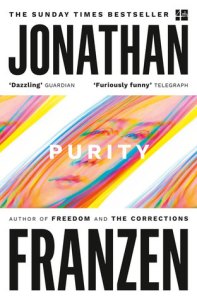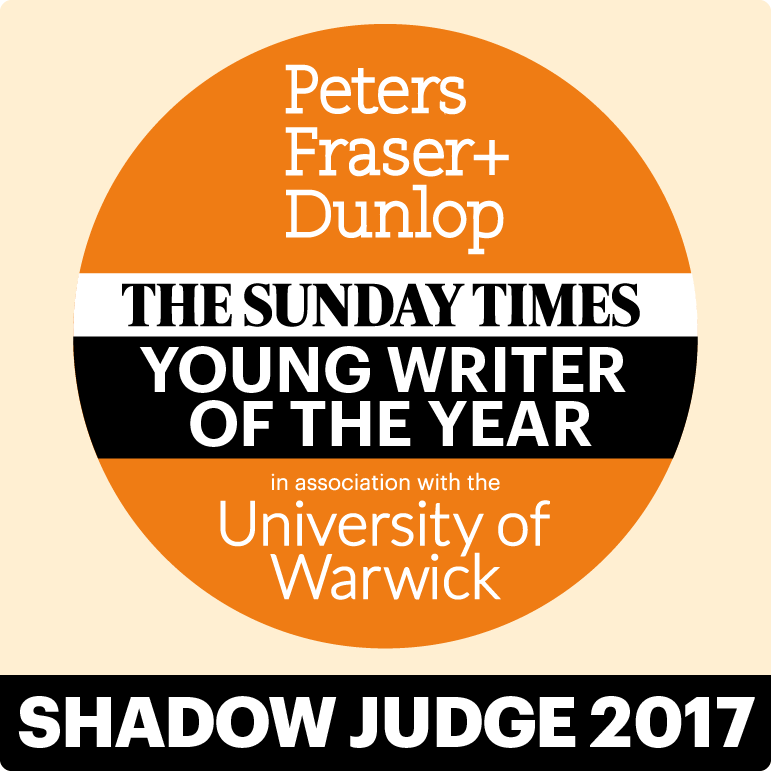 ‘Purity’ by Jonathan Franzen tells the story of Pip, a college graduate in her 20s living in Oakland, California and deeply in debt who is offered the chance to take an internship with the Sunlight Project in Bolivia led by East German peace activist Andreas Wolf. Pip hopes that working for the Sunlight Project – a Wikileaks-style organisation which traffics secrets – will lead her to some answers about her origins including the identity of her father. Her work eventually takes her to Denver where she meets investigative journalist Tom Aberant who has connections with Andreas and knows his darkest secret.
‘Purity’ by Jonathan Franzen tells the story of Pip, a college graduate in her 20s living in Oakland, California and deeply in debt who is offered the chance to take an internship with the Sunlight Project in Bolivia led by East German peace activist Andreas Wolf. Pip hopes that working for the Sunlight Project – a Wikileaks-style organisation which traffics secrets – will lead her to some answers about her origins including the identity of her father. Her work eventually takes her to Denver where she meets investigative journalist Tom Aberant who has connections with Andreas and knows his darkest secret.
I have had mixed feelings about Franzen’s writing which can be extremely clever and perceptive yet also infuriatingly pretentious and self-indulgent all at the same time. I liked ‘Freedom’ more than ‘The Corrections’ but I haven’t been in a hurry to read his latest novel which was published in 2015. However, I did enjoy reading his essay collection How To Be Alone a few years ago which explored different aspects of solitude, privacy and technology in society. These ideas are revisited in ‘Purity’ in a fictional and more satirical context alongside familiar themes from his novels concerning the nature of dysfunctional families.
There are some allusions to ‘Great Expectations’ (Pip has a “destiny” to fulfil and doesn’t know her date of birth, who her father is or her mother’s real name) as well as ‘Hamlet’ to a lesser extent through Andreas and his relationship with his parents. Although the main plot running through the book hinges on a murder, ‘Purity’ often reads more like a series of interlinked novellas or in-depth character studies due to Franzen’s tendency towards lengthy digressions concerning the back stories of the main protagonists. As ever, his writing style is very dense and wordy (‘Purity’ clocks in at a hefty 563 pages, no less) and the connections between the characters take a long time to fully develop.
‘Purity’ has been rated as one of Franzen’s funnier novels. I don’t think all of the humour really hits the mark but that’s probably because I’ve never been sure if Franzen either takes himself too seriously or merely pretends to. I prefer to think it’s the latter as although his portayal and limited development of female characters continues to be problematic, Franzen does at least appear to poke fun at his own reputation as an author of “bloated and immensely disagreeable” literary novels through the character of Charles Blenheim. There are also some sharp observations about the place of investigative journalism in the Internet age.
In a nutshell, ‘Purity’ represents what readers either love or hate about contemporary literary fiction. For me, it falls somewhere in between ‘Freedom’ and ‘The Corrections’ in terms of how much I enjoyed it and further confirms my view of Franzen as one of the most frustratingly brilliant yet puzzling authors writing today.





A friend offered me this as a trade after I lent him a couple of books, however I’ve been unable to indulge it, reluctant to allow it to push other titles out of the way, I’ve read his earlier works but his articles put me off wanting to read him further, so many more deserving writers to support.
LikeLike
I can definitely understand why you feel that way – I’m glad I borrowed this one from the library.
LikeLiked by 1 person
For someone who hasn’t read any Franzen, which novel would you recommend to me to read first – The Corrections, Freedom, or Purity?
LikeLike
I read Freedom first and liked it, so I’d probably still say that one out of those three.
LikeLiked by 1 person
Ok I’ll keep that in mind thanks.
LikeLiked by 1 person
I have this book but like you I haven’t been in a rush to read it, mostly because at the time it was published he was giving lots of interviews and he came across as so pompous! Since then, I heard him speak and I realised that what’s pompous on paper is kind of laconic in real life… I will read Purity eventually but will go in with low expectations.
LikeLike
Yes, it’s why it’s hard to judge the level of irony in his work… kind of ironic in itself!
LikeLike
I really liked The Corrections and I really disliked Freedom, I think my husband finished it but I did not! So I think I’ll leave this one – thank you for saving me from it!
LikeLike
It’s possible you may enjoy it more than I did but I can understand how mixed feelings about certain authors make the prospect of reading their later books less tempting.
LikeLiked by 1 person
Franzen belongs to a category of modern novelists about whom I have very mixed feelings. They include Paul Auster [and I have his door-stopper of a novel still to read for the MBP, 866 pages in all] and David Foster Wallace. Infinite Jest is sitting in the TBR pile, more than 866 pages plus about 150 pages of footnotes so the book weighs a ton and has well over 1000 pages. But I am informed that this one of those books one must read. And I have read Marcel Proust more than once, so surely I can manage this.
Where is a good editor when one needs them?
LikeLike
Yes, I’m not sure I’ll ever read Proust or David Foster Wallace but I am tempted by 4321 – lengthy books can be daunting though!
LikeLike
Never been overly impressed with his stuff, but I always like to give each book a chance. I will read it when I have nothing else I guess. I am currently reading The Edge of Sawtooth by Pete Ryan, petejryan.net for his info. It’s a great thriller, well worth a look. I’ll take books like his any day, I wish I felt that way about Franzen.
LikeLike
Yes, it’s not my favourite but it’s interesting how readers have had very different reactions to his books.
LikeLike
I enjoyed The Corrections and the way it addressed big themes in society within the confines of one family. Think I’ll go for this, but it’ll go on my Kindle as I can’t face lugging almost 600 pages around with me.
LikeLike
That sounds like a sensible approach! 🙂
LikeLike